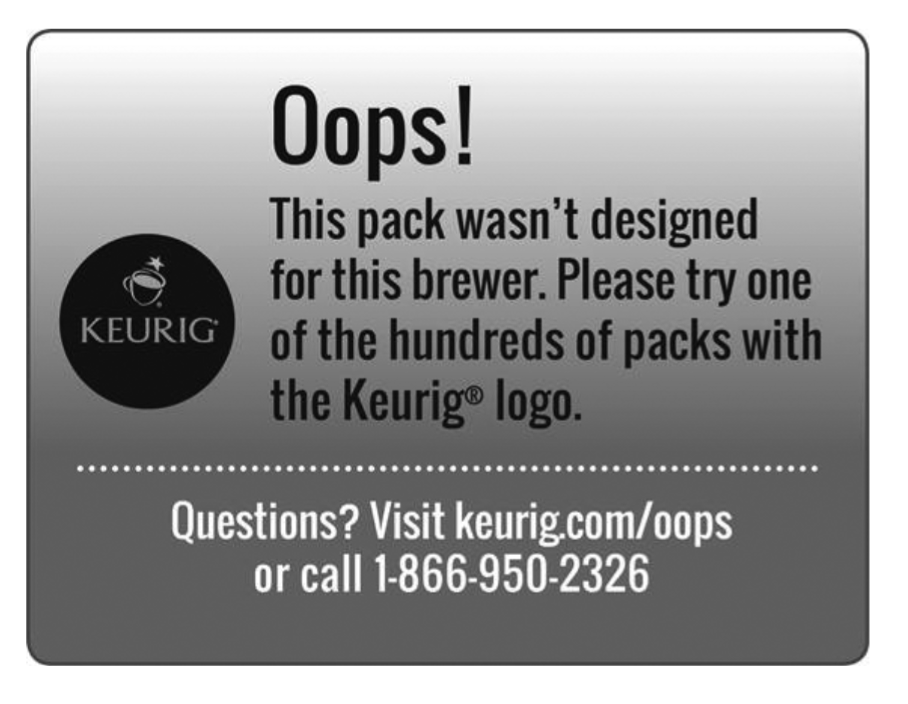Keurig Coffee Machines Are Hell Devices That Everyone Should Boycott
Credit to Author: Jason Koebler| Date: Mon, 13 Nov 2017 17:44:59 +0000
If you spent any time on Twitter this weekend, you may have seen the #boycottKeurig hashtag and noticed that conservatives are filming themselves performatively smashing their Keurig-brand coffee machines. Great!
The politics of all of this is nuts in a way that everything is nuts these days: Keurig announced it would stop airing ads during Sean Hannity’s Fox News show because Hannity is defending Alabama Senate candidate Roy Moore after the Washington Post reported that Moore fondled a 14-year-old girl when he was 32-years-old. In 2017, taking a stand against the alleged sexual abuse of a minor is somehow seen as politically divisive, and now conservative-coffee-maker-company relations are at an all-time low.
Keurig’s internal explanation of this move is baffling; its CEO told employees that it didn’t want to give “the appearance of ‘taking sides,’” which makes this entire blog post much easier to write from a moral point of view. Let me be clear: It shouldn’t be controversial to pull ads from a show that traffics in conspiracy theories, doubts victims of sexual abuse, and furthers the partisan division in this country.
But also: Keurig manufactures a hell machine that has been disavowed by its inventor. It encapsulates the very worst facets of late capitalism and should be boycotted by everyone for reasons that have nothing to do with Hannity. Besides making a product that is horrendous for the environment in its very premise, Keurig was also a pioneer in creating unrepairable, proprietary, single-use hardware and bringing Digital Rights Management and patent law loopholes to coffee machines.

“Sustainability is the worst part,” Kyle Wiens, the CEO of iFixit, who pushes electronics companies to make more sustainable devices, told me. “The pods aren’t recyclable or compostable. The device has more electronics than a laptop and isn’t recyclable. And it has screw-you DRM as a cherry on top.”
The Absurd Premise of Disposable Coffee Pods
If you’re not familiar, Keurig machines are designed to make single servings of coffee. “K-Cups” are single-serving plastic coffee pods that are disposable, not compostable, and, for the most part, not recyclable (Keurig introduced its first recyclable K-Cups last year and hopes to make all of its K-Cups recyclable by 2020).
“It is taking longer than it took for NASA to put a man on the moon, but in the coming months, the company will begin to sell K-Cups made of material that is easily recycled,” David Gelles wrote in the New York Times prior to their introduction. “Recyclable as they may be, the new cups are not compostable. They are not reusable. And Keurig will still be selling billions of pieces of plastic each year … to many environmentalists, this makes for a fundamentally irresponsible business model.”
Roughly 10 billion K-Cups are sold each year; a 2015 story by The Atlantic noted that if you laid out all the K-Cups sold in 2014 end-to-end, it would circle the globe roughly 10.5 times. Most of these are not recyclable because only a handful of K-Cups are recyclable as of this writing.
Inventor John Sylvan, who left Keurig several years ago, told The Atlantic that Keurigs are “kind of expensive to use” and noted that “no matter what they say about recycling, those things will never be recyclable.” This is because humans are shitty at recycling in general—how many plastic water bottles have you seen end up in trash cans—and most recycled things are actually down cycled, meaning they become something less useful as they go through its end-of-life.
Keurig machines are not repairable
When Wiens and his team tried to take apart a Keurig K55 last year, they learned it is an unpleasant experience: “It made us bleed,” Wiens told me. Two years ago, Washington-state coffee machine repairman Joe Young made a viral Facebook post in which he wrote “Keurig coffee machines are the bane of my trade.”
“They are not built to last,” he wrote. “They have no replaceable parts, so I cannot fix them. I am taking this van full of Keurigs to the dump. Because worst [sic] still they cannot be recycled.”
This means that any conservative who is currently destroying their Keurig is making another piece of e-waste, which, considering the disposable nature of their pods, might not be such a bad thing.
Keurig is a pioneer in the world of DRM coffee.
Keurig’s K-Cup design patents expired in 2012, and so a bunch of competitors flooded the market. Many of these competitors made recyclable pods. So, what did Keurig do? It created the “Keurig 2.0” system that would only work with new, proprietary pods.
“Customers who tried to brew cheaper, off-brand ground coffee were greeted by a message on the device’s display that politely refused to make their cup of coffee, instructing them to buy Keurig-brand coffee instead,” Aaron Perzanowski and Jason Schultz write in their book The End of Ownership. “Thanks to Keurig, conversations about coffee now have to account for questions of liberty as well.”
Let’s all just give ourselves the liberty to free ourselves from Keurig and other single-cup coffee makers and go back to making drip coffee. Yes, Keurig has gotten itself dragged into the muck that is the culture wars in 2017. But have no sympathy for it and feel free to boycott Keurig no matter your politics.